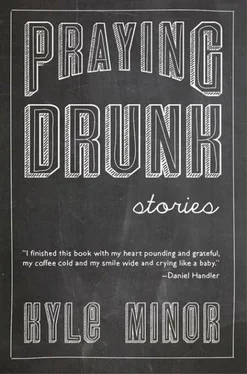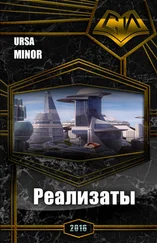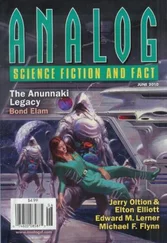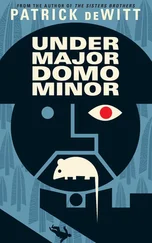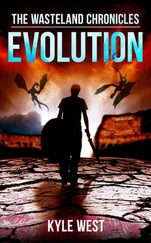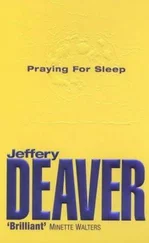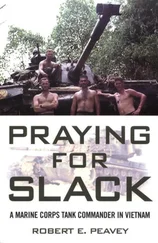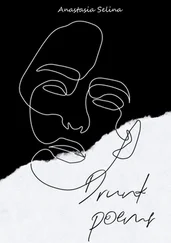He spoke in English, read in English, wrote in English, watched movies in English, gave tours of the missionary compound to visiting Americans and Danes in English. “They said, we’re your mothers now,” he said. “Children speak the language of their mothers.”
The day he turned seventeen, the two missionary ladies drove him up the mountain to his father’s house. They said, “Now you’re grown. We’ve done all we can.” Sebastian said, “Aren’t you my mothers?” They cried and drove away. His father came out of the house and cried and embraced him and spoke to him in a language he couldn’t understand. “The second curse was the curse of Creole,” Sebastian said. “It took me seven years to speak it well enough to pass for a Haitian.”
Up the hill was the houngan’s house. His wooden roof was painted purple beneath a field of orange stars. I wanted to visit him and convince him to sell it to me to take to Florida. Sebastian said, “If the houngan came to my village, we would have to kill him.”
“Why?” I said.
“Because,” Sebastian said, “he does not have the love of Christ in his heart.”
Later, I asked the elders of Sebastian’s village if they would kill the houngan. They laughed. “Sebastian is a liar,” they said. “The houngan is our friend. He goes to the church in Barette sometimes on Sundays when they need a trumpet player. The houngan is a good trumpet player.”
In the village Barette, Sebastian told me the third, fourth, fifth, sixth curses. It was getting dark, and we were walking up out of the village. I asked him what was the seventh curse. “You see these people, all my neighbors? I have to live among them. You and me, we’re not like them.”
He headed up the hill a ways, and I followed him across the mountain to his home. From every house we passed, people called their greetings.
2. Before the Earthquake
This was before the earthquake reduced the Hotel Montana to rubble. We were sitting at the bar drinking Dominican beers. Jean-Pierre, Sebastian, and me. The next morning we had to drive to Jacmel to count some rabbits and chickens. Sebastian had a little cocaine, and I gave him a little money, and he gave me the cocaine, and I put it in my pocket for the morning.
We were playing a game called Who’s More Heroic Than the Americans. It was a joke of a game. The first round everyone said: “Everyone who’s not an American.” The second round you had to tell another true story, but this one had to be specific.
“I knew a Catholic priest in Cité Soleil,” Jean-Pierre said. “He was Nigerian. The people were so mean to him. This went on for years. They stole things from his house. Once, he was beaten in the street and no one came to his aid. Still, he lived seven years in a shanty house, even though he could have lived well. He could have lived anywhere. One day a little retarded boy was crossing an open sewer on a lashed-together bridge made of two halves of one tree. The sewer was five feet deep with water and every kind of human waste. People pissed in it, shit in it. The sewer was the color of disease. This little retarded boy couldn’t have been more than five years old. Halfway across the bridge, some older boys came and shook both sides, just to be mean. The little retarded boy fell in. He was flailing around. There was a big crowd. People were watching him go down, but nobody wanted to jump in. Around the time the boy went over, the Nigerian priest came walking by. He didn’t even hesitate. He didn’t take off his clothes or his watch or take out his wallet or anything. He just jumped in, head-first, into the shitwater. He went under and came back up with that kid. That brown sludge was in his mouth, in his teeth, in his eyes.”
“I can beat that,” Sebastian said. “I knew a man who took a blowtorch to the side of a shipping container somebody was using for a store in the village Marigot. The store owner caught him red-handed at midnight. His bag was filled up with biswuit, dry goods, Tampico juices, Coca-Colas. The store owner called for his cousins, and his cousins called for their cousins. Soon all the men of the village surrounded this man in the shipping container. They tied him up, and in the morning they dragged him out into the middle of the road. They brought out all the children to see. The store owner said, ‘See what happens when you steal.’ While the man was still alive, they hacked off his fingers and toes one by one with a machete. They sealed the wounds with a hot iron. Then they hacked off his feet and hands. Then they hacked off his arms at the elbows and his legs at the knees. Then they poured gasoline over his head and set him on fire and watched him dance around while he died.”
“The store owner was a hero,” Jean-Pierre said, “for protecting his family business.”
“No,” Sebastian said. “The thief was a hero, for risking his life to get food for his family.”
They looked at me. I shielded my part of the table with my arm. I poured some of the powder on the table, made a line, and snorted. I said, “I wish I had some to share.”
3. After the Earthquake
We went down to the mausoleum where Sebastian’s dead were buried. The earth had buckled in waves, and one of the waves split the center of the concrete, and where it had split, the fresh corpses had fallen out of their graves and mingled on the ground with the bones of the longer dead, and some carrion animals were pulling at a dead woman’s face. The smell is in my nostrils still.
At the graveside, I told Sebastian I couldn’t take this gruesome scene, this horror movie.
Sebastian lifted the bodies from the ground one by one, and held them for a while. “Auntie Marie,” he said. “Auntie Ti-ti. Auntie Solange.”
4. The Pig and the Pony
We reached a vista. All of Port-au-Prince stretched out beyond us, the sun reflecting from the metal roofs of the bidonville shanties like a hundred thousand daytime stars. An American Airlines jet took off from the airport. Sebastian said any child with a shoulder-fired rocket launcher could stand on any rooftop in La Saline and blow any airplane out of the sky. Why hadn’t it happened yet?
A donkey draped with yellow saddlebags came up the road from the distance. A thin man in a yellow shirt led the donkey up the hill. He waved as he got closer. His shirt and the saddlebags said DHL in red letters. We said bonswa and komon ou ye and byen, byen . “What do you have?” Sebastian said. “Letters,” the DHL courier said. “Where is your motorcycle?” Sebastian said. The DHL courier said the gas tank had rusted out, so he had replaced it with a gallon milk jug, but someone had dropped a match into the milk jug while he was making a delivery at the cement store.
After the DHL courier left, six men came up the hill carrying a casket. They were dressed in fine linen suits, and white specks from the dirt in the road were soiling their shoes, which were newly shined. We made room so they could pass us, and as they passed we briefly joined in their funeral song.
We watched them disappear behind a bend where the road followed the curve of the mountain, and when they were gone, I asked Sebastian who was in the casket. “That is the wife of one of the elders of the village Jean-Baptiste,” he said. “She fell in love with a bourgeois man in the city. Every day she took the tap-tap to see him. He gave her so much money. When the elder found out, he fed her feet to his pony.”
Later I visited the village Jean-Baptiste and played soccer with some of the men who lived there. After the game, the women made a feast of rice and stewed tomatoes and a sauce of leeks and carrots. For me, they killed their fattest rabbit, and they would not take any money for it. While we were eating, I asked about the elder who fed his wife’s feet to a pony. A man stood up and said, “Come, let me show you.” We walked down the orange path, past his sister’s house, his brother’s house, the houses of his two friends and his one sworn enemy. A bone-thin pony was tied up in the front of his own house. He petted the pony, and said, “The lies they are telling about you.” Then we went to the back yard, where he kept two pigs, and he pointed to the fatter one. “It was this fellow who ate the feet,” he said. “Not the pony.”
Читать дальше
